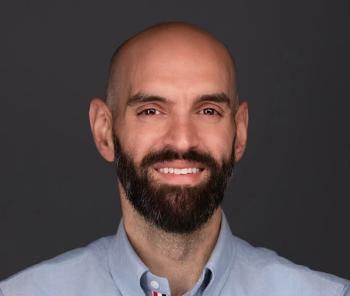
Seven from Seattle: Takeaways from the American Hospital Association Leadership Summit

The conference of healthcare leaders in Seattle showed a bit of relief, plenty of anxiety, and no small amount of hope. Here’s a quick roundup of observations.
Seattle – Sometimes, worthwhile insights come on the elevator.
After the second day of the American Hospital Association Leadership Summit, I shared an elevator with a hospital leader. It was a very brief discussion, since we only rode a few floors until reaching the lobby, but I asked if he was enjoying the conference.
“A lot of fun,” he said, smiling, “aside from the bad news.”
That’s really not a bad summary of the AHA summit. To be clear, it was not three days of doom and gloom by any means, though there were plenty of conversations about financial difficulties, staffing shortages, insurance battles and greater competition for patients.
But there was also some optimism that hospitals are in a bit better position than they were a year ago, and some executives are embracing the challenges of healthcare transformations.
The conference offered dozens of panel discussions and countless conversations, so don’t view this as an all-encompassing view of the leadership summit.
But here’s a quick rundown of some takeaways from a busy three days with many of America’s hospital leaders.
Time to innovate
Much of the conference was devoted to the transformation of healthcare, and there seemed to be a growing recognition that hospital executives need to think differently and embrace new possibilities.
Hospital executives said they understand that they’re going to have to make it easier for consumers to get healthcare the way they want it, including telehealth or in the home. They talked about embracing technology, including artificial intelligence, to serve patients and make life easier for their staff.
Warner Thomas, CEO of Sutter Health, said hospitals have to be willing to try and fail in some efforts, something that health systems don’t always embrace.
“We haven’t been necessarily comfortable with that in healthcare,” Thomas said.
Headwinds easing
Hospitals faced a difficult year in 2022. About half of all hospitals ended the year with expenses outpacing revenues.
No one seemed to offer an outlook as sunny as Seattle’s weather in July (and summer in the Emerald City is gorgeous, with Mount Rainier on display). Still, hospital executives said their financial pressures have eased, or were at least improving a bit. A number said they see some better days ahead.
But they also said that they don’t necessarily expect a return to pre-pandemic levels.
Burnout
Hospital leaders said they are faring a bit better in recruiting and retaining workers. But in conversations with healthcare leaders, they all cited concerns about the burnout of their staff and their well-being.
Many cited the frustration and burnout resulting from battles with insurers in getting insurers to approve treatments or medications for patients. Some also pointed to the headaches that come with administrative chores, including documentation in electronic health records. As in other healthcare conferences I attended this year, I heard repeated calls for digital solutions that help patients and make life a little easier for clinicians.
A panel on well-being highlighted the importance of health systems measuring the wellness and stress of their staff. But they also stressed the importance of doing more than surveys.
In short, hospitals should ask workers what they need, but then they have to take steps to address their concerns.
Emphasis on equity
Several discussions focused or discussed the need to improve health equity, and a number of hospital leaders I talked to spoke enthusiastically about those efforts.
Some also pointed the need to look through all healthcare efforts through the lens of health equity, including the growing use of AI. Executives talked about the need to address other problems, including food and housing insecurity.
“Everyone is not in the same place,” said Rosalyn Carpenter, senior vice president and chief diversity, equity, inclusion & community impact officer for CommonSpirit Health. “We can bring everyone along with us.”
One note: The hospital association revamped its annual equity award, now giving three honors for health systems of different sizes who are succeeding in closing disparities.
Look for more health equity stories coming from Chief Healthcare Executive®, including some insights from the AHA conference.
Improving maternal health
Amidst a number of reports detailing America’s woeful record on maternal mortality and morbidity, hospital leaders identified this as one of their top concerns.
Leaders from Ascension Healthcare and NorthShore University HealthSystem offered some insights on some of their heartening efforts to improve maternal health. They stressed the importance of looking beyond the delivery, particularly in providing better care throughout pregnancy and after they give birth.
America trails other industrialized nations in maternal mortality, and more than 80% of maternal deaths are preventable, according to the Centers for Disease Control and Prevention. A recent study also illustrated wide disparities in maternal health outcomes from state to state.
Women taking charge
While many hospital executives are men, the leadership summit featured many impressive women who are leading healthcare organizations and having a sizable impact.
The first day featured a
Female leaders also encouraged those in attendance to mentor women in their organization and provide opportunities for them to lead. They talked about the need to bring more women into the C-suite.
“Now it’s our turn,” said Jandel Allen-Davis, president and CEO of Craig Hospital. “We can change, literally, the cosmetics in the room.”
Behavioral health
A number of healthcare leaders pointed to mental health and substance use as an ongoing concern. Health systems across the nation have seen more hospitalizations for mental health needs. Pediatric hospitals have seen a sharp increase in the number of kids and teens needing emergency care for mental health. Some are seeing telehealth as a tool to offer more mental health services.
Several executives cited the number of homeless on Seattle’s streets as an indicator of the behavioral health crisis. Seattle has so much to offer, and I heard no one offer an unkind word about the city or its residents, but there’s no ignoring the number of individuals who are homeless and exhibiting signs of addiction.
Other cities have similar struggles, but it's clear that behavioral health remains a pressing problem.



























































































